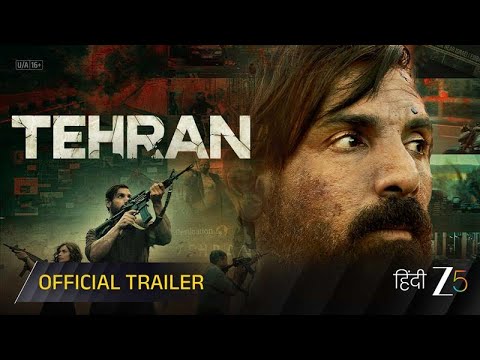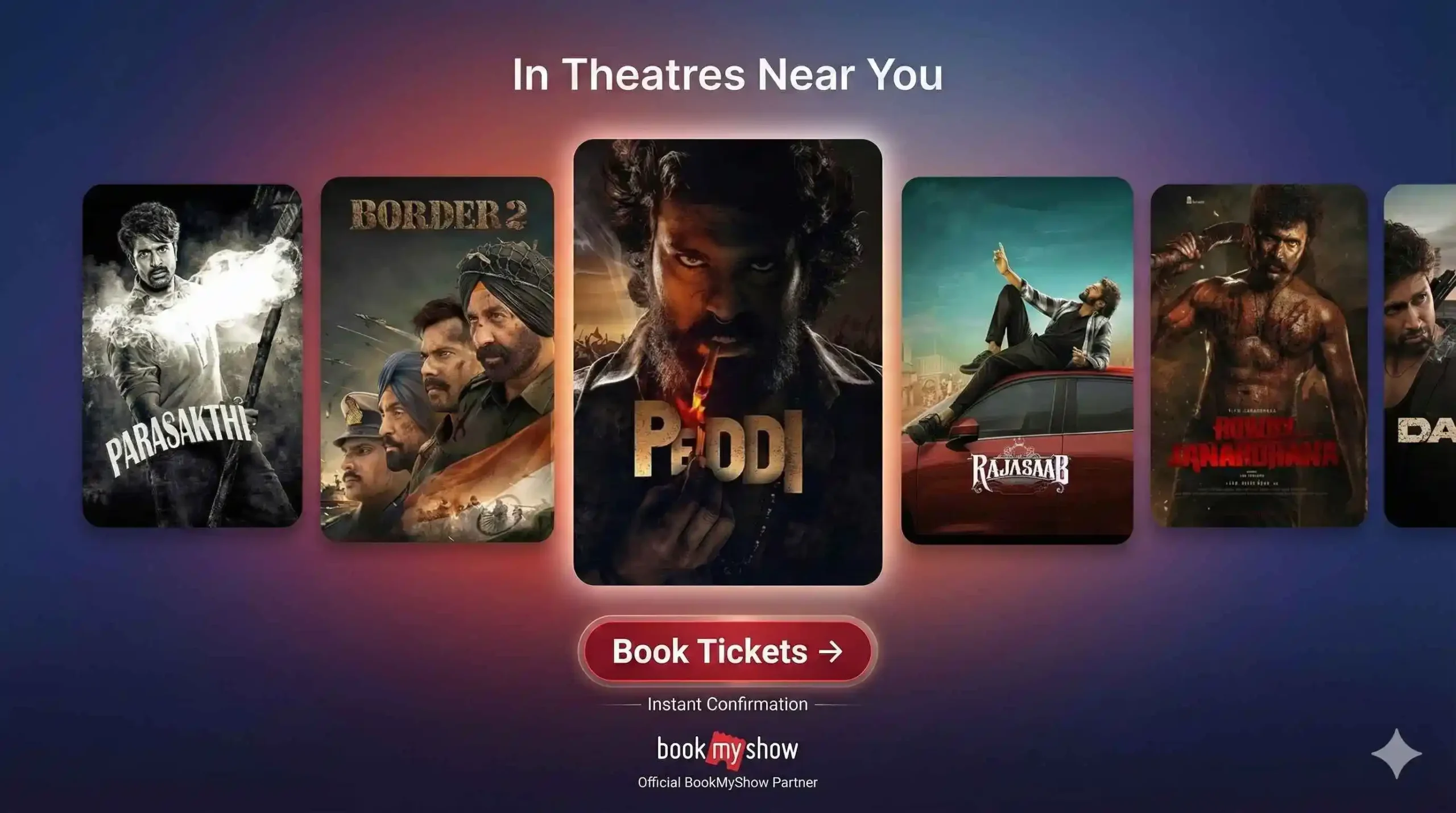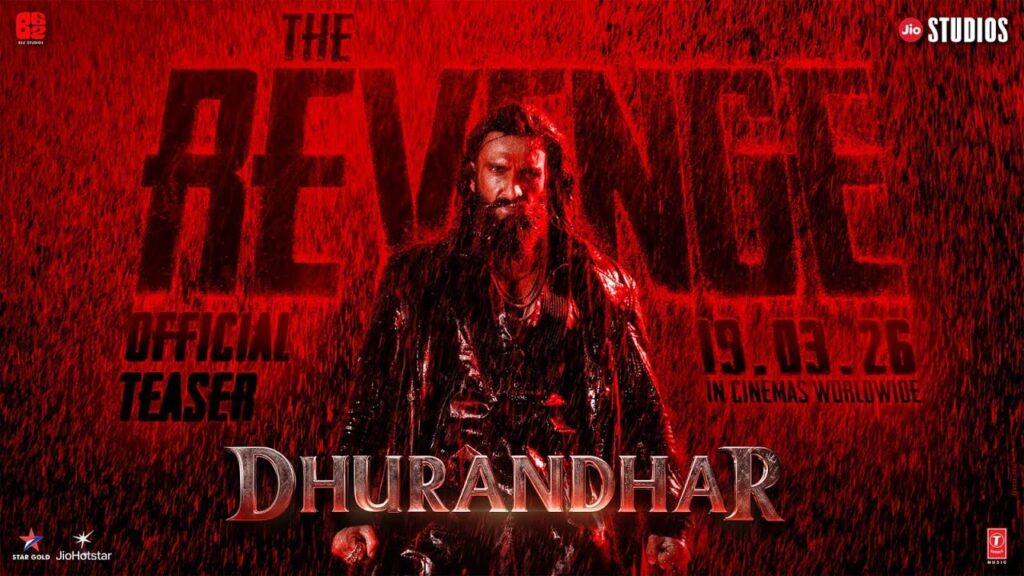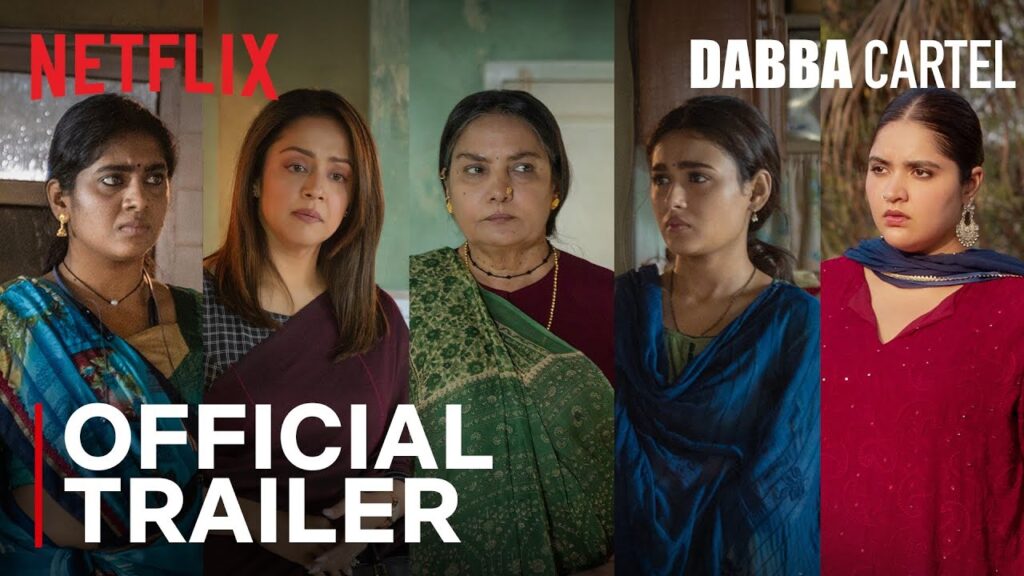Tehran Movie 2025 Bapamtv Review Details
Tehran (2025) — Movie Review: Emotional Impact & Dialogue Delivery
Tehran arrives as a tense political action thriller that aims straight for the heart while keeping the pulse racing.
Check showtimes, seat availability, and exclusive offers for the latest movies near you.
Check on BookMyShow →Built around ACP Rajiv Kumar, the film explores loyalty, conscience, and the human cost of espionage in a world of shifting alliances.
Quick Overview
Genre: Political action thriller.
Release: ZEE5 — August 14, 2025 (direct-to-OTT).
Lead cast: John Abraham, Manushi Chhillar, Neeru Bajwa, Madhurima Tuli.
| Aspect | Detail |
|---|---|
| Director | Arun Gopalan |
| Writers | Ritesh Shah, Ashish Prakash Verma |
| Cinematography | Ievgen Gubrebko, Evgeniy Gubrenko |
| Editor | Akshara Prabhakar |
| OTT | ZEE5 |
Emotional Core & Resonance
At its best, Tehran doesn’t just show action — it makes you feel the weight of decisions made in dim rooms and foreign streets.
John Abraham’s portrayal of ACP Rajiv Kumar anchors the film’s emotional center, balancing duty with private doubts in scenes that hit quietly but hard.
Manushi Chhillar’s S.I. Divya Rana is more than a sidekick; her resilience and brief, intense emotional beats add depth to the stakes.
Neeru Bajwa’s Sheilaja brings the film’s moral counterpoint, and these relationships give the geopolitical plot its human texture.
Dialogue Delivery
The screenplay often favors economy over flourish — lines are short, loaded, and intentionally delivered with restraint.
Dialogues work because the actors commit: John uses a gravelly calm, Manushi adds clipped determination, and supporting players keep scenes grounded.
Several scenes rely on subtext rather than speech, and the silences frequently speak louder than the words themselves.
At times, expositional lines become slightly on-the-nose, but those moments are rare and quickly eclipsed by raw, memorable exchanges.
| Scene Type | Dialogue Strength |
|---|---|
| Interrogation / Confrontation | High — crisp, tense |
| Emotional Confession | High — honest, low-key |
| Expositional Briefing | Medium — sometimes direct |
Character Emotional Arcs
Rajiv’s arc is the spine: a patriot who must reconcile public duty with private conscience as truths emerge.
Divya evolves from by-the-book cop to someone who understands the gray, showing real growth in both courage and moral complexity.
Sheilaja’s role is quieter but pivotal; her convictions force Rajiv to reassess loyalties and underline the film’s emotional stakes.
These arcs are compact but effective, giving the thriller a human scale that most genre films miss.
Direction & Pacing
Arun Gopalan keeps scenes tight and the tempo brisk, favoring short, impactful beats over prolonged spectacle.
The film balances international intrigue with intimate cinematic moments — a welcome approach that lets character moments breathe amid the action.
Pacing occasionally stumbles in the middle, where exposition slows the momentum, but editing pulls the film back to its intended groove.
Visuals & Setting
Shot across Tehran, Glasgow, Mumbai, and Delhi, the locations lend authenticity and a global texture to the story.
Cinematography captures both the cold vistas of diplomatic tensions and the warmer, cramped interiors where secrets ferment.
These choices reinforce the emotional mood without overshadowing the narrative beats or dialogue-centric scenes.
| Location | Impact |
|---|---|
| Tehran | Authentic backdrop; raises stakes |
| Glasgow | Contrasting cold, adds mystery |
| Mumbai & Delhi | Emotional home-ground grounding |
Music & Sound
The soundtrack plays a supportive role, with a song appearance that punctuates a lighter note amid the tension.
Audio design during action sequences elevates the emotional impact, making explosions and close calls feel personal rather than cinematic noise.
OTT Premiere & Audience Reach
Tehran’s direct-to-OTT release on ZEE5 ensures wide accessibility and positions the film for strong digital viewership.
Launching near India’s Independence Day gave the film topical relevance and likely boosted initial attention online.
Its political subject matter makes it a talking point, and the OTT format invites repeat viewing and social media discussion.
Strengths & Weaknesses
Strengths: strong lead performances, believable emotional beats, and a grounded, human approach to espionage.
Weaknesses: occasional exposition-heavy patches and a few predictable thriller tropes that slip in now and then.
| Element | Verdict |
|---|---|
| Acting | Superb — John & Manushi stand out |
| Screenplay | Solid — emotionally resonant with minor lapses |
| Production | Badiya — locations and design work well |
Star Rating
| Source | Rating |
|---|---|
| IMDb (user) | 8.2 / 10 |
| Reviewer (this article) | 4 / 5 |
Disclaimer: Star rating may vary depending on viewer expectations and evolving public opinion.
Why Watch Tehran?
If you want an espionage drama that puts heart before flash, Tehran is a badiya pick.
The film balances geopolitical tension with intimate storytelling, and the dialogue delivery often elevates scenes into genuinely felt moments.
For viewers who enjoy spy dramas with emotional heft and strong central performances, Tehran delivers in a Super way.
Final Thoughts
Tehran is an emotionally grounded political thriller that succeeds because its characters matter as much as the politics around them.
With committed performances and a focus on human consequence, the film is both gripping and quietly affecting — a solid OTT offering for fans of the genre.
FAQs
Question 1
Is Tehran based on real events?
Answer 1
The film is inspired by geopolitical tensions related to Israel-Iran events and references real-world incidents in a fictionalized narrative.
Question 2
How are the performances, especially John Abraham and Manushi Chhillar?
Answer 2
Both leads deliver strong performances; John anchors the emotional weight, while Manushi brings energy and resolve in action sequences.
Question 3
Should I watch it for drama or action?
Answer 3
Watch it for both — the film blends intense action with emotional drama, prioritizing character-driven stakes over mere spectacle.











